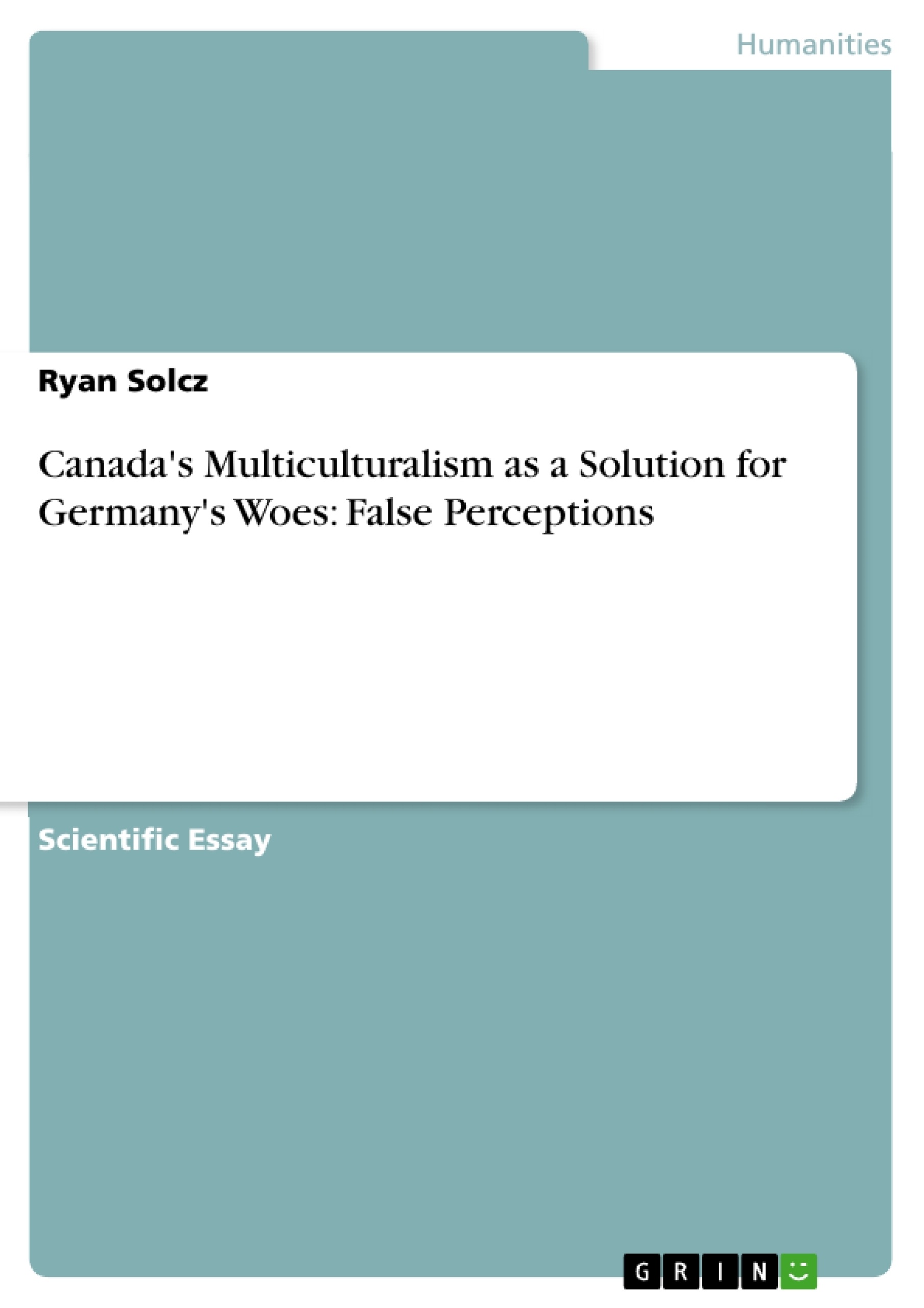Excerpt
There has been a lot of discussion lately about the German immigration crisis and the need to repair the battered system. Angela Merkel’s discourse earlier this year where she proclaimed that multicultural policy in Germany had failed, highlights this sentiment well.[i] As a result, Germans are looking for solutions to “one of the most important political and societal challenges of this century”.[ii] Several academics have called on Germany to look at Canada for help with policy.
Canada has always been “a nation of immigrants”.[iii] “‘No other Western country has gone as far as Canada in adopting multiculturalism not only as a policy towards minorities but also as a basic feature of shared identity’”.[iv] It is part of this Canadian identity to welcome immigrants who collaborate with their fellow Canadian-born citizens to build the nation. In fact, “multiculturalism” is enshrined in Canada’s constitution under The Charter of Rights and Freedoms and it is also a statute named The Canadian Multiculturalism Act. Klingholz writes of the positive ways Canada uses its new migrants and how its Asian migrants achieve levels of education that surpass those of Canadian Caucasians[v]. Geißler actually argues that it is worth examining Canadian multicultural policy more closely because Germany can learn in some aspects from Canada.[vi] All of these things are true.
In this paper, I also enter the debate on adapting the Canadian multicultural system in Germany. I will foremost identify that there is indeed an immigration problem (even crisis) in Germany. I will then analyze the Canadian multicultural policy more closely to see if it has any relevant application to Germany’s current situation. Contrary to Klingholz, Geißler, and others, I argue that Canada has little to teach Germany with respect to immigration. Third, I look at other possible and more practical solutions for Germany.
Trouble with Immigration in the Land of Goethe?
It is undeniable that immigration is a problem in Germany, and I am not the first to argue so.[vii] There are several issues that require resolution. For one, there is a rift between migrant communities and the German majority. Germans see themselves as separate from migrants, and immigration has never been a part of German identity.[viii] Germany stated for years that it was not a country of immigration, and immigration has never received high public support[1].[ix] Its citizenship laws exemplified this stance: they relied on the principle of jus sanguinis, meaning that one could not become “German” through naturalization as one could, for example, become Australian.[x] Further, when Germany did liberalize its citizenship laws in the nineties, many Germans saw this as a threat to German “authenticity”.[xi]
Thus, Germany has created a two-tiered system in which most migrants still remain separated from mainstream society. Few of them are politically active. In 1999, only 0.4 % of migrants belonged to a German political party.[xii] They are four times more reliant on social welfare than Germans[2].[xiii] Education is also a major problem: a high portion of migrants do not have any Abschluss[3]. For example, 54% of those living in Germany with Turkish citizenship aged 26-35 do not have any graduation certificate; the rate for Germans of the same age group is only 12%.[xiv] No wonder the OECD states that immigrants in Germany have the worst level of education out of Western democracies.[xv]
[...]
[1] A 2000 poll showed that 66% of Germans thought that immigration “exceeded the limits of what is bearable”.
[2] For the duration of this paper, “Germans” will refer to those of German ancestry born within current German territory; this term does not include so-called “ethnic” Germans born abroad but who retained German citizenship under Germany’s former citizenship laws.
[3] German secondary school graduation
[i] Eddy, 2010
[ii] Belwe, 2003, p.3
[iii] Reitz, 2004, p.97
[iv] Winter, 2009, p.6
[v] 2010,p.131
[vi] 2003, p.19
[vii] See Sarrazin, 2010, pp.16-17.
[viii] Hansen, 2008, p.171
[ix] Martin, 2004, p.247
[x] Brubaker, 1992, p.183
[xi] Triandafyllidou, 2006, p.3
[xii] Ireland, 2004, p.53
[xiii] Sarrazin, 2010, p.282
[xiv] Ibid, p.284
[xv] Klingholz, 2010, p.129
- Quote paper
- Ryan Solcz (Author), 2010, Canada's Multiculturalism as a Solution for Germany's Woes: False Perceptions, Munich, GRIN Verlag, https://www.grin.com/document/193434
Publish now - it's free






















Comments